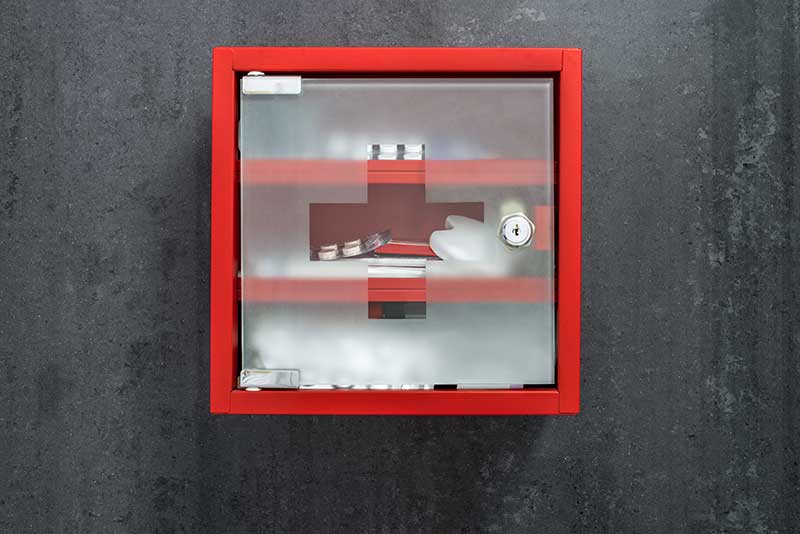
Every household with children should maintain a separate medicine cabinet stocked with only the children’s medicines. It should be labeled and stored locked and away from young children. On the outside of the cabinet, write your pediatrician’s emergency number and poison control number: (800) 222-1222.
Here is a recommended list of supplies and medications:
- A working thermometer with fresh batteries. Use a digital rectal thermometer in children under 12 months of age.
- A medicine teaspoon/dropper/syringe with accurate measurements. You should not use a kitchen teaspoon to dispense medicines.
- Fever reducers. Label each one with the dose for each of your children, as per your pediatrician’s recommendation. Remember: your child may not always need to take this, so ask your pediatrician.
- Acetaminophen in the age-appropriate form. Do not give to an infant under 2 months of age.
- Ibuprofen in the age-appropriate form. Do not give to an infant under 6 months of age.
- An antihistamine such as diphenhydramine or cetirizine in the age-appropriate form (liquid or chewable) for allergic reactions, hives, itching, etc. Ask your pediatrician about dosing. Do not give to a child less than 2 years of age without asking your doctor first.
- Triple antibiotic over-the-counter medicated cream for simple cuts.
- 0.5% or 1% hydrocortisone cream (anti-inflammatory for skin lesions such as bug bites, itchy rashes, and mild eczema). Do not use it on sensitive areas or in the diaper, unless advised by your doctor.
- Saltwater spray/saline nose drops and a suction bulb or nose aspirator for infants (used to loosen nasal congestion to make it easier for infants with nasal congestion to breathe)
- An antifungal cream OTC to be used for athlete’s foot, ringworm or yeast diaper rashes in infants
- Pedialyte® /Kinderlyte or another electrolyte replacement solution for vomiting and/or diarrhea.
- An ice pack and Ace style wrap for older children for ankle sprains or other injuries
- A variety of sizes of gauze pads and bandages to care for wounds
- Betadine or Epsom salts for soaking and cleaning wounds.
- Hydrogen peroxide for cleaning wounds.
- Diaper barrier cream. Choose one that has 40% zinc oxide.
- Arnica cream for bruising
- Probiotics for infants and children
- Your infant’s or child’s chronic or emergency medications, if they have been prescribed. (eg. Epinephrine auto-injectors, asthma inhalers, etc). Keep a reminder on your calendar every 6 months to check if these are expiring. Epinephrine autoinjectors come in packages of 2. Always keep both injectors together.
- The American Academy of Pediatrics no longer recommends OTC cough and cold medicine for children under the age of 6 years old.
Dr. Irene Papaconstadopoulos, MD Board Certified Pediatrician, Fellow of the American Academy of Pediatrics
Source: Heading Home With Your Newborn, 2nd Edition (Copyright © 2010 American Academy of Pediatrics)



